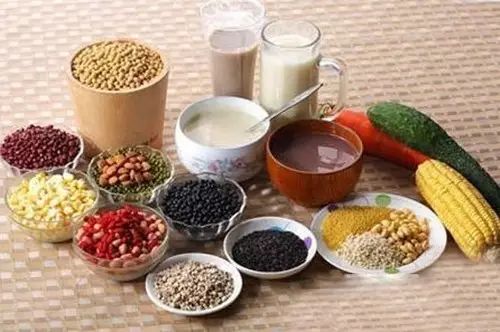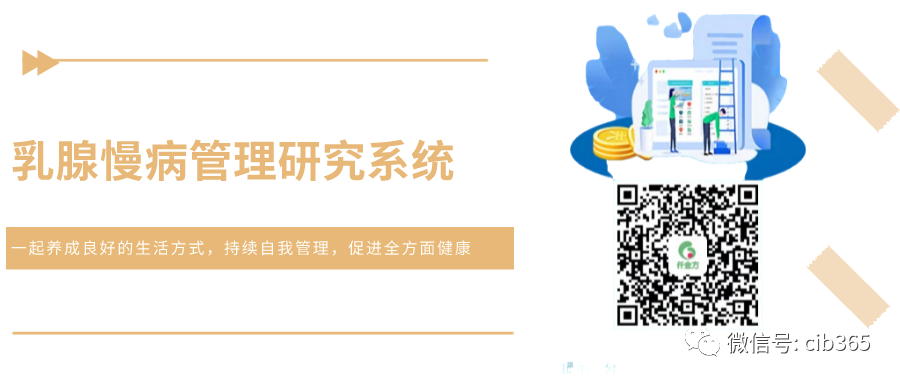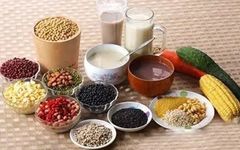Individuals with Yin deficiency have insufficient Yin fluids in their bodies, which can easily lead to symptoms of internal heat, such as heat in the palms and soles, dry mouth, and irritability. So, what are the symptoms of Yin deficiency and internal heat? How should one regulate Yin deficiency and internal heat?
The Yin deficiency constitution is one of the nine major constitutions in Traditional Chinese Medicine (TCM). A significant characteristic of individuals with a Yin deficiency constitution is the presence of internal heat symptoms, which are quite similar to what we commonly refer to as “excess heat” symptoms. Therefore, some people mistakenly treat Yin deficiency and internal heat as excess heat, but these two conditions are entirely different.
Yin deficiency and internal heat
Generally, we consider symptoms like a scratchy throat, dry mouth, and acne on the face as signs of “excess heat.” Drinking more water or taking some heat-clearing medicine when symptoms are severe is often the go-to solution. However, TCM believes that “heat” symptoms are directly caused by the invasion of the natural world’s “heat evil,” leading to excess heat symptoms due to an imbalance of Yin and Yang, which disrupts normal hidden functions. There are many factors that can cause excess heat, so one should not blindly attempt to “clear heat.”
Many people now make the mistake of misinterpreting the symptoms of Yin deficiency and internal heat as “excess heat.” Yin deficiency and internal heat refer to a condition caused by the deficiency of Yin fluids (including blood, body fluids, and essence) in the body, leading to a failure of water to control fire. This type of heat is often low-grade, with patients feeling warm either consciously or unconsciously, and body temperature readings may sometimes be slightly above normal. Symptoms include: tidal fever, night sweats, dry mouth and throat, red tongue with little coating, etc.
Symptoms of Yin deficiency and internal heat
When the following 10 symptoms appear, you should not consider it as “excess heat,” but rather as “Yin deficiency and internal heat.”
1. Thin, rapid, or wiry pulse.
2. Dry stools, yellow urine, or a sensation of heat in the urine.
3. Heat in the palms and soles, reluctance to be covered by clothing or blankets.
4. Irritability, craving cold drinks or cold food.
5. Dry mouth, bitter taste, dry throat, nausea.
6. Restless sleep, night sweats, profuse sweating, nocturnal emissions.
7. Fever. (High fever, low fever, or normal temperature with a sensation of heat on the skin)
8. Bleeding. (Nosebleeds, gum bleeding, or subcutaneous bleeding points are all caused by Yin deficiency and internal heat)
9. Dizziness, palpitations, general weakness, pale complexion.
10. Yellow or greasy tongue coating, dry with little moisture or scorched yellow with little moisture.
Factors causing Yin deficiency and internal heat
1. There is a certain relationship with excess heat.
2. Frequent smoking and drinking.
3. Staying up late; for workaholics, working overtime is quite normal, but this is also a significant issue.
4. Depression; a person’s emotions are also closely related to this.
5. There is also a certain relationship with one’s constitution.
Foods to regulate Yin deficiency and internal heat
Individuals with Yin deficiency and internal heat should consume the following foods, which can effectively regulate various symptoms caused by Yin deficiency and internal heat:
1. Pork
Neutral in nature, sweet and salty in flavor, it has the effect of nourishing Yin and moistening dryness. The Ben Cao Bei Yao states: “Pork has a lasting flavor, nourishes the intestines and stomach, generates essence, and benefits the skin.” Therefore, it is suitable for individuals with a Yin deficiency constitution.
2. Duck meat
Neutral in nature, sweet and salty in flavor, it can nourish Yin and support the stomach. The Sui Xi Ju Yin Shi Pu states that it can “nourish the Yin of the five organs, clear the heat of deficiency, and nourish the stomach and generate fluids.” It is commonly believed that duck meat is the ideal food for nourishing Yin, making it suitable for those with a Yin deficiency constitution.
3. Eggs
Neutral in nature, sweet in flavor, they not only benefit Qi and nourish blood but also have the effect of nourishing Yin and moistening dryness, whether the egg white or yolk. Eggs are considered an excellent source of protein in the medical community, containing complete proteins such as ovalbumin, ovoglobulin, and phosphoprotein. They are particularly suitable for individuals with Yin deficiency, especially when consumed with soybeans, as is commonly practiced in folk traditions.
4. Milk
Neutral in nature, sweet in flavor, it is not only rich in nutrition but also has the effect of nourishing Yin, generating fluids, and moistening dryness. Throughout history, many medical practitioners have praised the Yin-nourishing properties of milk, stating it can “moisten the skin and quench thirst,” “moisten the skin,” and “moisten the large intestine,” or “nourish the five organs” and “nourish and replenish fluids.” Individuals with a Yin deficiency constitution should consume it regularly for significant benefits.
5. Soft-shelled turtle
Neutral in nature, sweet in flavor, it has the effect of nourishing Yin and cooling the blood, making it an excellent tonic for those with Yin deficiency. The Ben Cao Bei Yao states it can “cool the blood and nourish Yin.” The Sui Xi Ju Yin Shi Pu also states that soft-shelled turtle can “nourish the Yin of the liver and kidneys, and clear the heat of deficiency.” Therefore, it is particularly suitable for those with Yin deficiency and blood heat or Yin deficiency with excessive fire.
6. Turtle meat
Neutral in nature, sweet and salty in flavor, it can nourish Yin and replenish blood, making it suitable for individuals with Yin deficiency. The Yi Lin Zuan Yao states it can “treat bone steaming heat and symptoms of Yin deficiency with blood heat.” Turtle shell products, such as turtle shell gelatin, also have the effect of nourishing Yin and replenishing blood, making them suitable for individuals with Yin deficiency.

7. Dried scallops
Also known as Jiang Yao Zhu or Ma Jia Zhu, this is a type of seafood. Neutral in nature, sweet and salty in flavor, it can nourish Yin and support the kidneys. The Ben Cao Qiu Zhen states it can “nourish true Yin.” The Ben Cao Cong Xin states it can “treat thirst.” Dried scallops are tender and delicious, being a high-protein food, making them particularly beneficial for individuals with Yin deficiency when used in soups.
8. Sea cucumber
It has the effects of nourishing Yin, replenishing blood, benefiting essence, and moistening dryness. The Yao Xing Kao states it can “lower fire and nourish the kidneys.” The Shi Wu Yi Ji also states: “Sea cucumber nourishes kidney essence and benefits the marrow.” Sea cucumber is a high-protein, low-fat delicacy that can greatly nourish and also nourish Yin, making it suitable for individuals with a Yin deficiency constitution.
9. Clams
Cold in nature, salty in flavor, they can nourish Yin, transform phlegm, and soften hardness. Ancient medical practitioners believed that “clams have the same function as clams and can nourish Yin and brighten the eyes.” Ming dynasty physician Miao Xiyong pointed out: “Clams are moistening and help with body fluids, thus nourishing the five organs, quenching thirst, and stimulating appetite.” Therefore, they are particularly suitable for individuals with a Yin deficiency constitution or those suffering from Yin deficiency-related conditions such as diabetes, dry syndrome, tuberculosis, and tumors.

10. Freshwater clam meat
Rich in protein and vitamins, it has the effects of nourishing Yin, clearing heat, and brightening the eyes. Qing dynasty physician Wang Mengying also believed that clam meat can “clear heat, nourish Yin, and cool the blood.” Individuals with Yin deficiency often consume clam meat in soups, which is most suitable.
11. Cuttlefish
Neutral in nature, salty in flavor, it can both nourish blood and effectively nourish Yin. The Yi Lin Zuan Yao states it can “greatly nourish blood and nourish Yin.” Qing dynasty physician Huang Gongxiu also stated: “Cuttlefish meat is Yin in nature, entering the liver to nourish blood and entering the kidneys to nourish water.” It is particularly suitable for those with liver and kidney Yin deficiency.
Tips: Drink warm water regularly, ensure adequate sleep, avoid staying up late, eat light foods, and avoid fried, barbecued, and spicy foods. Consume foods that clear heat, such as cucumbers, spinach, eggplant, water spinach, mung bean soup, and bitter melon, as TCM considers them cooling and effective in clearing heat. However, be cautious with the quantity consumed to avoid overloading the digestive system and causing diarrhea.



